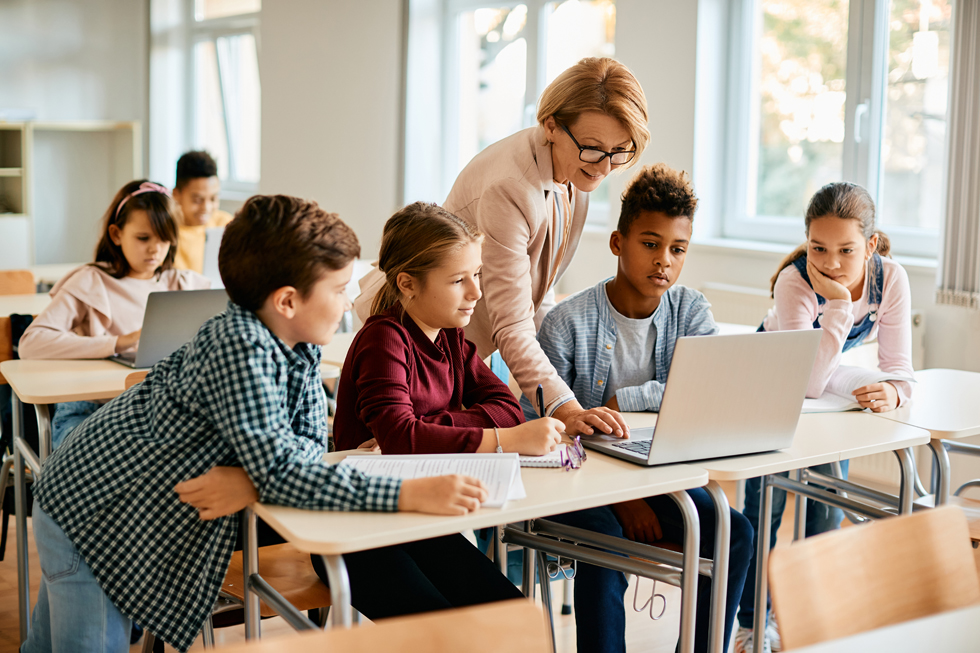The Influence of College Environments on Academic Success and Personal Well-Being
The college setting substantially affects both scholastic success and personal well-being, encompassing components such as physical design, classroom environment, and social characteristics. The style of academic spaces, including natural illumination and ergonomic furnishings, can boost students' concentration and comfort. Moreover, the top quality of teacher-student partnerships and the nature of peer interactions play critical duties in promoting an atmosphere conducive to learning and emotional assistance. Recognizing exactly how these various factors interaction to shape student results elevates important inquiries about optimizing academic settings for holistic advancement. Just how can schools purposefully improve these elements to better sustain their pupils?
Physical Layout and Design
Exactly how does the physical design and layout of a college impact scholastic success? The plan and visual of an institution environment can considerably affect pupils' knowing results.
Natural lighting and efficient air flow systems are pivotal in improving cognitive function and reducing absenteeism. Research studies have actually revealed that class with ample natural light enhance pupil focus and decrease feelings of sleepiness. Ergonomic furniture tailored to trainees' requirements can protect against physical pain, enabling for extended emphasis and engagement in scholastic activities.
Access to outside areas and aesthetically pleasing surroundings additionally play a crucial duty - Save Temecula Schools. Environment-friendly spaces and well-kept college grounds give possibilities for workout and psychological leisure, both of which are very important for maintaining high levels of scholastic performance. Basically, a thoughtfully created physical atmosphere can act as a stimulant for scholastic excellence, fostering an environment that supports both mentor and knowing
Class Environment
A setting that promotes a sense of safety, inclusivity, and mutual respect encourages students to involve even more actively in their understanding processes. The ambiance of a class, including facets such as lights, noise degrees, and seating arrangements, can significantly impact student concentration and motivation.
In addition, the class environment should sustain a culture of partnership and open communication. When students really feel comfy expressing their concepts and asking concerns, they are most likely to engage deeply with the material and establish essential believing abilities - Save Temecula Schools. Peer interactions and group activities can enhance discovering by giving varied perspectives and promoting team effort
In addition, establishing clear assumptions and constant routines can develop a structured atmosphere that permits students to concentrate on their studies. By minimizing uncertainty and offering a foreseeable structure, trainees can much better handle their time and obligations. Inevitably, a positive class atmosphere not only improves scholastic efficiency however also contributes to the general wellness of pupils, preparing them for future instructional and individual undertakings.
Teacher-Student Relationships
Building on the relevance of a favorable class environment, the relationships between teachers and students play a crucial role in forming academic success. A healthy and balanced teacher-student partnership promotes a learning environment where students really feel valued, comprehended, and sustained, which substantially boosts their motivation and interaction. When trainees regard their teachers as understanding and approachable, they useful link are most likely to take part actively in class and look for assistance when needed, adding to a much deeper understanding of the subject matter.

Effective communication is key to supporting these partnerships. Educators who utilize open, respectful, and constant interaction develop a structure of depend on. This count on makes it possible for students to share their problems and concepts easily, cultivating a joint understanding atmosphere. Fundamentally, solid teacher-student relationships are a keystone of instructional success, playing an essential duty in both academic accomplishment and personal advancement.
Peer Communications
Peer interactions dramatically influence academic success by shaping a trainee's social and cognitive advancement. Favorable peer communications can improve a pupil's motivation and engagement in academic activities through collaborative knowing and shared support.

Efficient peer interactions additionally add to the growth of essential life abilities, such as cooperation, interaction, Clicking Here and problem resolution. These social competencies over at this website are essential for both scholastic success and personal wellness, underscoring the importance of cultivating positive peer dynamics within the institution setting.
After-school Activities
Engaging in extracurricular tasks plays a critical function in a student's scholastic success and individual growth. Research study regularly suggests that students who take part in extracurricular tasks tend to achieve higher scholastic performance.
Additionally, extracurricular participation cultivates a feeling of belonging and area, which is vital for individual wellness. Joining group tasks allows students to build and enhance social networks, improving their emotional and social intelligence. These communications are vital for developing social abilities that are beneficial in both future and academic expert environments.
Furthermore, extracurricular tasks provide a useful outlet for trainees to discover their rate of interests and interests beyond the standard educational program. This expedition can result in the discovery of brand-new abilities and possible profession paths, additionally motivating trainees to engage more deeply in their scholastic job. In conclusion, the role of extracurricular tasks extends beyond plain leisure; they are essential to fostering an all natural instructional experience that advertises both academic success and individual development.
Final Thought
Altogether, the impact of school settings on both scholastic success and individual wellness is extensive. Attentively developed physical formats and class, in addition to favorable teacher-student partnerships and useful peer communications, considerably enhance student motivation and engagement. The presence of supportive instructors can mitigate anxiety, promoting a nurturing environment helpful to holistic development. These components jointly highlight the significance of developing and keeping ideal institution settings for the benefit of students' scholastic and personal development.
Inevitably, a positive class environment not just improves scholastic performance yet additionally contributes to the general wellness of pupils, preparing them for future instructional and individual ventures.